Laser Tattoo Removal in Israel
Search and Compare the Best Clinics and Doctors at the Lowest Prices for Laser Tattoo Removal in Israel

Find the best clinics for Laser Tattoo Removal in Israel
With Medijump you can browse 4 facilities offering Laser Tattoo Removal procedures in Israel. The cheapest price available is $245 in Ramat Gan. And for the cheapest price globally, prices start from $3 in Vietnam.
Laser Tattoo Removal in Ramat Gan
Price: $ 245
Laser Tattoo Removal in Tel Aviv
Price: $ 279
Vietnam offers the best prices Worldwide
Price: $ 3
From 24 verified reviews
sigalit kochmeister, 11 February 2020
Very professional, kind and attentiveLovely clinic and wonderful staffHighly recommend
From 24 verified reviews
Raymonde Amsalem, 02 February 2020
True courtesy and integrity! Uncompromising professionalism in maintaining a natural and flattering aesthetic appearance. Dr. Meir Cohen and his staff are simply outstanding! Highly recommend
Herzelia Dermatology and Laser Center, located in Ramat Yam St, Herzliya, Israel offers patients Laser Tattoo Removal procedures among its total of 30 available procedures, across 2 different specialties. Currently, there's no pricing information for Laser Tattoo Removal procedures at Herzelia Dermatology and Laser Center, as all prices are available on request only, whilst the national average price is approximately $262. All procedures and treatments are undertaken by the lead specialist at the Hospital, and they are accredited by AAD - American Academy of Dermatology
Health Tour, located in Ramat Yam St, Herzliya, Israel offers patients Laser Tattoo Removal procedures among its total of 105 available procedures, across 21 different specialties. Currently, there's no pricing information for Laser Tattoo Removal procedures at Health Tour, as all prices are available on request only, whilst the national average price is approximately $262. All procedures and treatments are undertaken by the lead specialist at the Hospital, and they have multiple recognized accreditations, including: Accreditation Programme of Health OrganizationISPS - The Israel Society of Plastic Surgeons
- Home
- Israel
Compare Before & After Photos of _procedure_photos.phpLaser Tattoo Removal


Front view
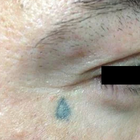
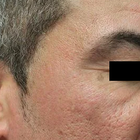
Half-side view
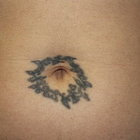
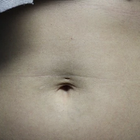
Front view

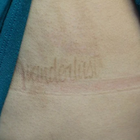
Front view
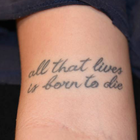
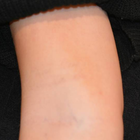
Front view
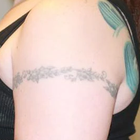
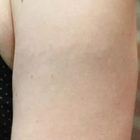
Full-side view
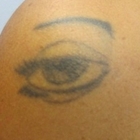
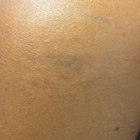
Front view
WHY US?
At Medijump, we're making medical easy. You can search, compare, discuss, and book your medical all in one place. We open the door to the best medical providers worldwide, saving you time and energy along the way, and it's all for FREE, no hidden fees, and no price markups guaranteed. So what are you waiting for?

Free

Best Price

Widest Selection

Risk-Free
What you need to know about Laser Tattoo Removal in Israel
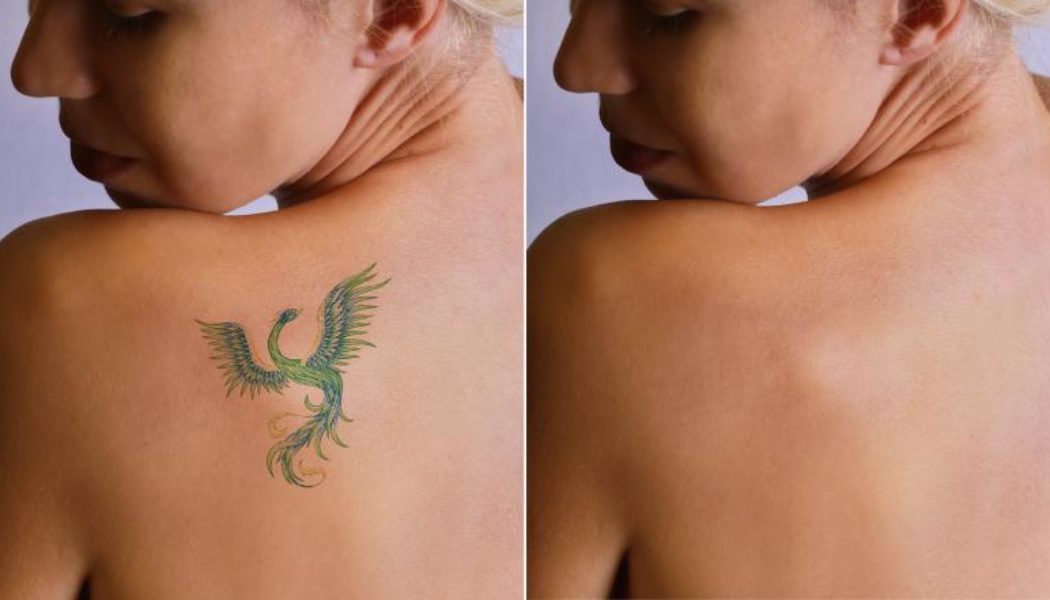
Laser tattoo removal is a technique to eliminate an unwanted tattoo with little to no side effects. It works by breaking up the pigment colors with a high-intensity light beam. You can undergo a laser tattoo removal if you regret having a tattoo, unhappy with the appearance of your tattoo, the tattoo causes infection, or you have an allergic reaction to the tattoo. Once you've done laser tattoo removal, your unwanted tattoo will be gone forever.
Grasping the notion that Laser Tattoo Removal is not a one-off activity, but instead encompasses an array of treatments distributed over multiple weeks, is crucial. Variables like the dimensions, hue, tattoo positioning, along with the person's general well-being determine the count of requisite sessions.
What is the cost of Laser Tattoo Removal in Israel?
In Israel, the Laser Tattoo Removal cost can greatly fluctuate. It hinges upon several considerations such as the size, emplacement, tattoo color, and the amount of needed therapy sessions. Other influencing factors are the laser technology utilized and the reputation of the clinic.
The majority of clinics in Israel extend payment schemes and financing aids to render the process more financially manageable. Bear in mind, though, that Laser Tattoo Removal isn't typically included in medical insurance coverage as it's deemed a beauty-related procedure. Irrespective of the expenditure, it is vital to give precedence to first-rate care and the proficiency of the healthcare staff over cost-effectiveness.
What does a Laser Tattoo Removal Procedure Involve?
The process of Laser Tattoo Removal entails directing particular wavelengths of laser light on the tattooed part of the skin. A highly specialized laser is chosen depending on the colors present in the tattoo for carrying out this technique. The light pulses penetrate the skin's topmost layers to reach the tattoo's pigment. This energy from the light leads to the fragmentation of the tattoo ink into minute particles, which are gradually flushed out by the body's immunity system.
Most people do not need anesthesia, but you can ask for a topical or local anesthetic from your doctor. During the procedure, you will have to wear protective eye shields. Then, your doctor or technician uses a laser to bring pulses of intense light to the top layers of your skin and only the tattoo pigment will absorb this light. Depending on the size, color(s), and age of your tattoo, you might need more than one treatment session.
How Long Should You Stay in Israel?
You can leave Israel after your tattoo removal procedure. However, it may take several treatments to completely remove the tattoo. Given that everyone reacts distinctively, the process might necessitate anywhere from 3 to 10 visits. The interval between each treatment is around 7 weeks to allow the treated area enough time to heal. You are free to retreat to your home, or a place of your choosing, in between these sessions. This sequence persists until your tattoo is completely removed. Nevertheless, it is critical to resume your journey to Israel for each forthcoming Laser Tattoo Removal.
What's the Recovery Time Like?
You will feel pain and discomfort for around a week, but your skin will completely heal in around six weeks. You should be able to go to work as long as you do not feel any pain or discomfort that interferes with your life.
Right after every session, you may observe minor swelling and a reddish tint on the manipulated area. These indications normally wane within a short span that can range from a few hours to two days and can be tamed with chilled packs and popularly accessible pain relievers. Evading exposure to sunlight and demanding activities in the initial few days is of utmost importance to forestall probative issues.
What sort of Aftercare is Required for Laser Tattoo Removal Procedures in Israel?
Your doctor will give you aftercare instructions; make sure to follow the instructions. Keep the treated area clean, do not soak the area, and try to avoid popping blisters. If the treated area itches, apply hydrocortisone cream. Avoid smoking as it can reduce the effectiveness of laser tattoo removal by around 70%.
The treated region should also be protected from the sun and covered with a high SPF sunscreen because the skin will be more susceptible to UV deterioration. Additionally, avoiding activities that could result in significant sweating or close contact with the area of the skin that is receiving treatment is advised. You must avoid the impulse to pick or scratch at the treated area if you want the skin to heal properly. Finally, maintaining effective healing and general health requires drinking plenty of water and eating a diet that is nutritionally balanced.
What's the Success Rate of Laser Tattoo Removal Procedures in Israel?
Laser tattoo removal is the most effective tattoo removal treatment with a success rate of over 95%. It's important to understand that when discussing tattoo removal, the term "effectiveness" typically refers to the degree of tattoo fading rather than complete tattoo removal. The depth, type, and concentration of the ink, the tattoo's colour, as well as the recipient's skin features and overall health, can all have an impact on the final design.
Are there Alternatives to Laser Tattoo Removal Procedures in Israel?
Laser Tattoo Removal has evolved into a highly effective strategy for eliminating tattoos, but you're afforded various other alternatives if Laser Tattoo Removal does not align with your requirements. Intense pulsed light (IPL) therapy, for instance, where light pulses are deployed to dissolve the tattoo ink, could be a viable proposition particularly for larger tattoos. However, for heavily inked or deeper tattoo locations, IPL might not yield the desired outcome.
Dermabrasion is yet another alternative. It's a process that employs skin 'sanding' to eliminate the surface and middle skin layers. Compared to laser treatments, dermabrasion can be less comfortable and requires a more prolonged healing duration. In certain instances, it might also be viable to surgically remove the tattoo with a scalpel, but be prepared for the potential of scarring. Therefore, when deciding on the best course of action, it's important to discuss your unique requirements and expectations with a specialist.
What Should You Expect Before and After the Procedure
Before the Laser Tattoo Removal, there will be a discussion with the expert regarding your health history, the treatment information, and your anticipated outcomes. The area on which the tattoo is located must be hygienic and devoid of any ongoing skin issues. A topical anesthesia may be applied during the session for your comfort. The feeling you might experience when the laser is used could be likened to the feeling of a rubber band being flicked against your skin.
Post-treatment, the tattooed section may look inflamed and red, and it could feel a bit warm to the touch and tender. These symptoms should diminish over a few days. It is vital that you adhere to the follow-up care guidelines given by the clinic to ensure the best healing process and outcome. Generally, this requires cleanliness of the area, avoiding direct sun, and abstaining from activities that can irritate the skin. Regular check-ups of your healing process with your expert can assist with timely detection and management of any potential post-treatment issues.
What are Potential Risks of Laser Tattoo Removal?
Laser Tattoo Removal carries some side effects and risks, such as:
- Infection
- Hypopigmentation and hyperpigmentation (treated skin becomes significantly darker or lighter than its surroundings)
- Scarring, bleeding, swelling, and blisters
It's important that you get proper treatment by a reputable doctor to avoid these side effects and risks.
Whilst the information presented here has been accurately sourced and verified by a medical professional for its accuracy, it is still advised to consult with your doctor before pursuing a medical treatment at one of the listed medical providers
No Time?
Tell us what you're looking for and we'll reachout to the top clinics all at once
Enquire Now

Popular Procedures in Israel
Prices Start From $28

Prices Start From $6,002

Prices Start From $278

Recommended Medical Centers in Israel for Laser Tattoo Removal

- Interpreter services
- Translation service
- Religious facilities
- Medical records transfer
- Medical travel insurance
- Health insurance coordination
- TV in the room
- Safe in the room
- Phone in the room
- Private rooms for patients available

- Interpreter services
- Translation service
- Religious facilities
- Medical records transfer
- Medical travel insurance
- Health insurance coordination
- TV in the room
- Safe in the room
- Phone in the room
- Private rooms for patients available

- Interpreter services
- Translation service
- Religious facilities
- Medical records transfer
- Medical travel insurance
- Health insurance coordination
- TV in the room
- Safe in the room
- Phone in the room
- Private rooms for patients available

- Interpreter services
- Translation service
- Religious facilities
- Medical records transfer
- Medical travel insurance
- Health insurance coordination
- TV in the room
- Safe in the room
- Phone in the room
- Private rooms for patients available

- Interpreter services
- Translation service
- Religious facilities
- Medical records transfer
- Medical travel insurance
- Health insurance coordination
- TV in the room
- Safe in the room
- Phone in the room
- Private rooms for patients available

- Interpreter services
- Translation service
- Religious facilities
- Medical records transfer
- Medical travel insurance
- Health insurance coordination
- TV in the room
- Safe in the room
- Phone in the room
- Private rooms for patients available

- Interpreter services
- Translation service
- Religious facilities
- Medical records transfer
- Medical travel insurance
- Health insurance coordination
- TV in the room
- Safe in the room
- Phone in the room
- Private rooms for patients available

- Interpreter services
- Translation service
- Religious facilities
- Medical records transfer
- Medical travel insurance
- Health insurance coordination
- TV in the room
- Safe in the room
- Phone in the room
- Private rooms for patients available
Laser Tattoo Removal in and around Israel
About Israel
Israel celebrated 70 years of independence in 2018 - in what is a truly ancient land. The world’s only Jewish and democratic state is home to sites sacred to Judaism, Christianity, and Islam. While these holy places are truly unique attractions, there is more to Israel than religious heritage and complex politics. Jerusalem is the official capital and holy city to three world religions, previously mentioned, while Tel Aviv brims with beaches and bustles with urban vitality. Then there’s the Dead Sea and Masada, the stark, stunning Negev, and fertile Galilee. The number of museums and cultural institutions per relative area is larger in Israel than anywhere in the world.
Home to more than 30 JCI accredited facilities, medical tourists visit Israel for a variety of procedures, but particularly dental and tertiary care. Laser Tattoo Removal procedures are also a popular choice.
Popular Parts of Israel
Israel is an alluring destination for those who want to appreciate its astonishing religious sites, stunning natural beauty, and remarkable historic relics.
- Tel Aviv is the economic and technological center of Israel, with a population of over 400,000; it is the most populous city in the country. Located on the Mediterranean coastline, the city offers sunny beaches for any sun-chaser. The city has impressive architecture and has a modern cosmopolitan landscape. Tel Aviv Museum of Art houses works by international artists. In addition, it has a nonstop nightlife with a huge party option to fit every taste.
- Haifa is the country’s third-largest city and it is one of Israel’s high-technology centers as well as a busy working port. The city may have an industrious image, but with a number of museums, gardens, and shrines, it is an amazing place to travel to. The Baha’i Gardens are possibly the most popular attraction as it is the final resting place of the prophet-herald of the Baha’i Faith. Tourists can have a bird’s eye view from the platform at the top or take a free Panorama Tour.
- Eilat is located at the southernmost tip of Israel and is the only Israeli city on the Red Sea. Families come to the city to have a good time on the beach and party-goers come for its all-night parties. The turquoise waters invite visitors to snorkel, scuba dive, or swim. It is recommended to stay in an Oasis at night to get a chance to stargaze under a clear desert night sky. During the day, visit the Eilat Mountains to have a beautiful view of an ancient desert.
- Tsfat or Safed is a quaint mountain-top city surrounded by pine forests. Located at an elevation of 900 meters, the city enjoys warm summers and cold winters. It is a popular summer holiday resort frequented by Israelis and foreign visitors. Here, tourists will find synagogues, art galleries, and unique crumbling stone houses.
- Jerusalem is one of the oldest cities in the world and three major Abrahamic religions (Judaism, Islam, and Christianity) considered it a holy city. Even though it has been destroyed and rebuilt over thousands of years, the city manages to endure its spiritual magnetism. It is overflowing with holy sites, diversity, and layers of history.
Weather and Climate in Israel
Israel is a year-round destination but the temperatures in the city vary widely. The coastal areas such as Tel Aviv and Haifa experiences a typical Mediterranean climate where the winters are rainy and the summers are hot. The area around Northern Negev has a semi-arid climate with hot summers and cool winters. The Southern Negev has a desert climate with extremely hot summers and mild winters. On the other hand, mountainous regions have pleasant summer and cold winters with a little snowfall.
Generally, the winter months from November to March are the coldest months in the country. When mountainous areas such as Jerusalem receives snowfall, the coastal areas experience heavy rainfall. Summer starts in June and ends in August and it is the hottest season in every part of the country, especially in the desert area where the heat can be overbearing. The seasons of spring and autumn have the best weather, with pleasant temperatures and fewer rainy days.
Getting Around in Israel
Ben Gurion Airport is the main gateway to Israel and it is the busiest airport in the country located 20 kilometers southeast of Tel Aviv and 45 kilometers northwest of Jerusalem. The airport is ranked among the five best airports in the Middle East. It serves both domestic and international flights to and from numerous major cities around the world. There is two main passenger terminal at this airport. Terminal 1 serves domestic flights and international budget airlines such as EasyJet and Vueling, while Terminal 3 serves international flights.
Since the distance between one city to another is relatively short, getting around Israel is easy. The quickest and most convenient way is by domestic flights. The tickets are not very expensive and deals are often available online. Sometimes a one-way ticket can cost as little as 89 NIS (25 USD). Buses are also convenient but can be slow during traffic jams. Buses connecting Jerusalem, Tel Aviv, and Haifa depart very frequently. A one-way ticket from Tel Aviv to Jerusalem is around 25 NIS (7 USD). Israel’s main bus company is the Egged Bus Company. Trains are also available and very comfortable. They are a lot faster than the bus but the cost can be higher.
Taxis are widely available and can be hailed directly from the streets. Although most taxis are metered, you can agree on a fixed rate and be aware that some drivers are known to overcharge tourists, so you should insist on using the meter and make sure that it is reset to the base fare after you get in. The base fare is normally around 12.30 NIS (3.5 USD). There is also a shared taxi van known as Sherut. It is a good option to travel between Tel Aviv and Jerusalem or Tel Aviv and Haifa.
Tourist Visas in Israel
All visitors must hold a passport valid for at least six months after the date of departure from Israel. Citizens of 99 countries including the European Union, Canada, Singapore, Russia, and the United States do not require a visa to enter the country for up to 3 months. Nationals not listed on the visa exemption agreement need to obtain a visa and should contact their nearest embassy of Israel. Citizens of 25 countries require a confirmation from the Israeli government before a tourist visa is issued.
Additional Information
- Local Currency: The currency is the New Israeli Shekel (NIS) and 1 USD will get you 3.28 NIS.
- Money & Payments: ATMs that accept international cards are widespread (mostly Visa and MasterCard), except at border crossings with Egypt and Jordan. Credit cards are widely accepted and tipping is common but normally not expected.
- Local Language: The official language is Hebrew and Arabic has a special status under Israeli law as a semi-official language. Russian is spoken by around 20% of the population. Most of the population can speak English fairly well as it is required in schools and universities.
- Local Culture and Religion: More than 70% of the population follows Judaism. There are small groups of Muslims, Christian, and Druze. Muslims are the largest minority group in the country.
- Public Holidays: The country celebrates major national holidays as well as Jewish holidays such as Independence Day, Jerusalem Day, and Hanukkah.
Popular Searches
- Plastic Surgery in Thailand
- Dental Implants in Thailand
- Hair Transplant in Thailand
- Breast Augmentation Thailand
- Gastric Sleeve in Thailand
- Gender Reassignment Surgery in Thailand
- Laser Hair Removal in Bangkok
- Botox in Bangkok
- Dermatology in Bangkok
- Breast Augmentation in Bangkok
- Coolsculpting in Bangkok
- Veneers in Turkey
- Hair Transplant in Turkey
- Rhinoplasty in Turkey
- Stem Cell Therapy in Mexico
- Rhinoplasty in Mexico
- Liposuction in Mexico
- Coolsculpting in Tijuana
- Rhinoplasty in Korea
- Scar Removal in Korea
- Gastric Sleeve in Turkey
- Bone Marrow Transplant in India
- Invisalign in Malaysia
- Plastic Surgery in the Dominican Republic
- Tummy Tuck in the Dominican Republic
- Plastic and Cosmetic Surgery in Poland
- Rhinoplasty in Poland
- Hair Implant in Poland
- Dental Implants in Poland
- IVF in Turkey



